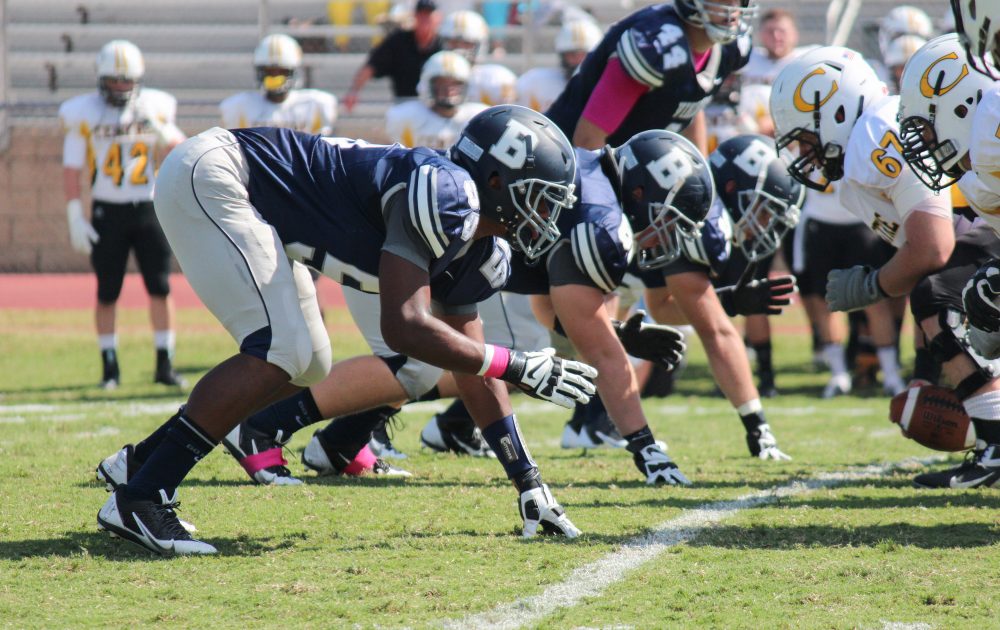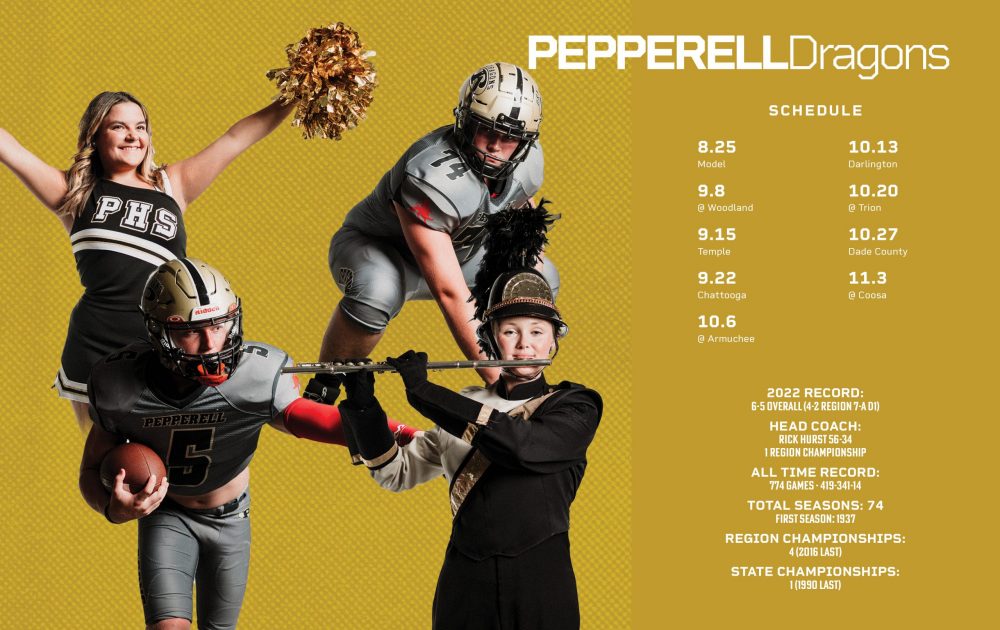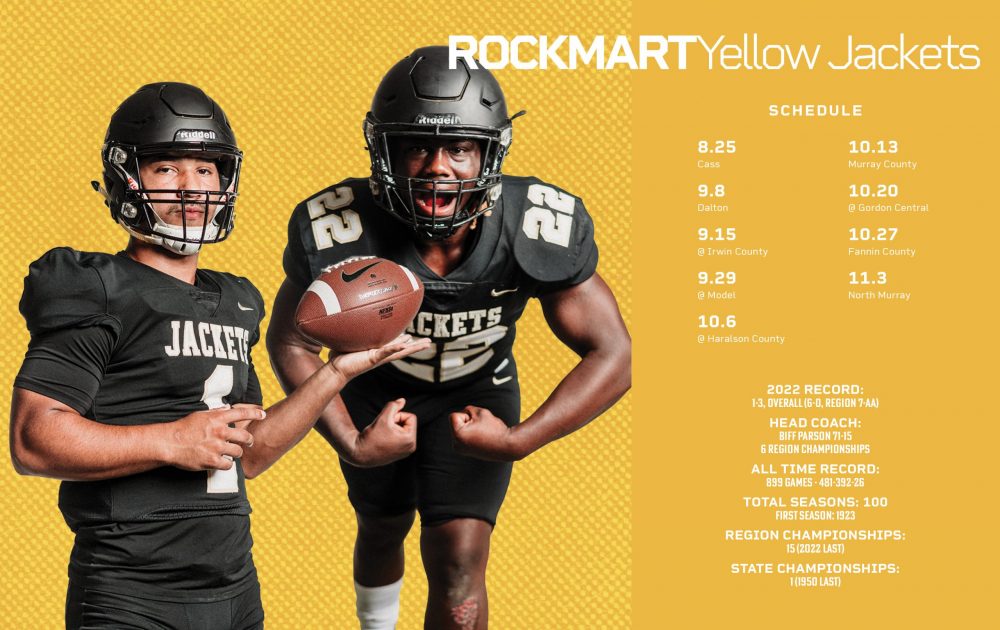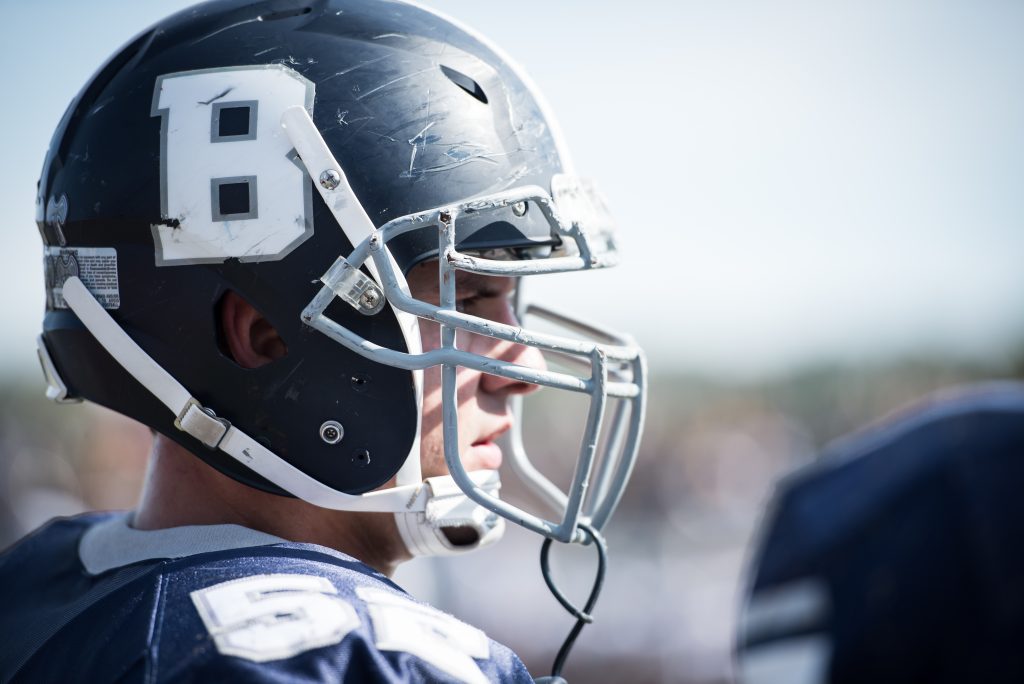
Photos Courtesy of Berry College, Mary Claire Stewart and Lauren Neumann
Football practices don’t get hot; they start that way. At 9 a.m., it’s humid and warm. At 12:30 p.m., it’s still humid but now scorching. And at 5 p.m., the afternoon sun moves the mercury high in the thermometers. You won’t find any shade by the 50-yard line. Players fight against weariness and the sultry air. Offenses are run nonstop – five, six times or maybe even more. Every step, turn, and movement the quarterback and linemen take is planned. It’s a dance, not a car wreck. Defenses are fine-tuned into choreographed finesse and practice makes permanent. All while the Georgia August heat drums on.
Berry College’s football program is to undergo its sophomore year. Soon, 42 freshmen will mix with last year’s green Vikings – who now have a collegiate season under their belts – to face the summer swelter. This recruitment class comes to Berry knowing that no athletic scholarship or financial kickback awaits their schooling budget; yet they still play, balancing a demanding practice regimen with an even more demanding academic commitment. It’s all for the love of the game.
Division III athletes are not paying for an education by signing on to suit up for their respected college of choice. Division III football is about students who played Pee Wee, Pop Warner, JV and varsity as children in the sport. Somewhere along the way, they got something out of it that mattered more than the score.
Sophomore quarterback Adam Sandin, a pre-medical student, epitomizes this. “I play because I have loved football my entire life,” he says. “I think Division III football is pure in the sense that most players have the same mindset. They are all extremely passionate about the game, and hope to combine collegiate athletics with a great education.”
To many DIII athletes, football is not a means for education; it’s a supplement to the awaiting challenges of college.
“There are a multitude of things I will like to take away from my Division III football experience,” Sandin says. “I’m hoping that football will help me implement a strong worth ethic, solid time management skills, leadership ability and great people skills.”
The Jacksonville, Fla., native finished his freshman year strong with a 3.97 GPA, and when he’s not on the field, he partitions his time between Campus Outreach, Fellowship of Christian Athletes, local volunteerism and 10 hours per week with Berry’s intramural department.
Sandin says his life dream is to become a pediatrician and use medicine as a means to serve those in need. He hopes to take what he will learn as a practicing physician to Africa one day, namely to Kenya or the Congo. But first, he must make it to medical school. “I’m hoping that by combining collegiate athletics with a strong liberal arts education that my resume will stick out among the competition,” he says. Becoming a doctor is his end goal, and he knows that it’s his education that will get him there, not football – but it doesn’t hurt to be schooled by the game in the process.
Berry College Head Football Coach Tony Kunczewski, who played Division III at Grove City College, too, puts a big emphasis on education. To him, academics are at the pinnacle of the priority list. “The vast majority of the guys, not only at Berry and Division III, but Division II and Division I are not going pro,” Kunczewski notes. “So, what is really important? Is it getting your degree, moving on and getting a job, or going to grad school? Academics are first and foremost.”
Football players at Berry and other Division III schools are students first and athletes second, with an eye on a prize larger than 100 yards. To reach for this, many of these student-athletes take on more than just football and a class schedule. While most college coaches become giddy when asked to recant his leading rusher’s 200-yard game last week, Kunczewski’s face relaxes into a smile as he brags on some of his athletes’ collegiate accomplishments outside the gridiron – like a proud father.
According to Kunczewski, the 2014 roster will be comprised of five Gate of Opportunity Scholars, four Presidential Ambassadors, a Fellows Scholar, two Bonner Scholars, four WinShape Scholars, two S.O.A.R. leaders and two resident assistants. Twenty-two were named to the SAA Academic Team, and seven were named to the All-Conference team. Several aim for med-school; one is interning with a $500 million, multi-national telecommunications company; and countless others have volunteered their time in the local Rome community – in one instance, participating in an event that helped raise $25,000 to fight multiple sclerosis. There is not enough space in this magazine to sum up every noteworthy accolade.
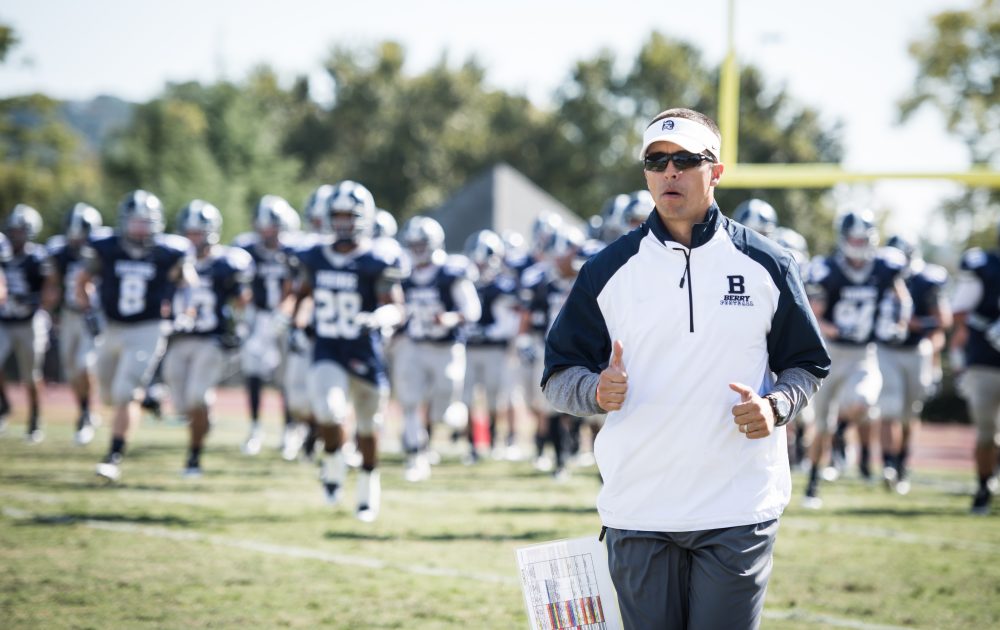
One student-athlete, Adam Hubert, is working his way through school as a Gate Scholar. In exchange for 20 hours of work during the academic year and full-time hours during the summers, this sophomore history major and corner back will graduate debt-free from Berry College. He works 47 of the 52 weeks as the lead sound tech and ministry coordinator for Mount Berry Church, the campus’ ecumenical student ministry.
In trendy clothes and rocking a ’90s flat top, Hubert is often spotted in the chaplain’s office working on projects from social media to tinkering with the church’s website, and running the soundboard during services and events. He wears his grin and friendly disposition like his Vikings jersey. This summer, his smile welcomed 590 incoming students and thousands of parents as a Student Orientation Advising and Registration (S.O.A.R.) leader. Needless to say, Hubert is busy, very busy. Yet, he still commits 20 hours a week to football.
Hubert has been playing since he was young in Ooltewah, Tenn. – not too far from Chattanooga. Starting in Pee Wee, he played safety and advanced up the levels, eventually playing from 2008-2012 for Ootlewah High School. While the opportunity for professional football is slim, he’s still thankful to have the chance to play in college, he says.
To Hubert, the emphasis on his education at the collegiate level was the main pull for him to continue playing. “The focus on academics and the college experience, mixed with competitive athletics, was very attractive to me,” he says. “Through my academics, work, athletics and religious life, I hope to get a unique experience I wouldn’t have gotten anywhere else.”
Since the National Football League might be a long shot, Hubert hopes his focus on work and school, coupled with lessons learned on the playing field, will afford him opportunities to make the most of his life and, in the process, give to others. He hopes to become an educator and minister to inner-city kids. “I know athletics can be a bridge between students and adults,” he says with a smile. “So not only do I love playing [football], I also hope to gain more knowledge of the game and tools I could use to someday be a coach and mentor to students.” The 100-degree weather, hard hits and disciplined schedule are his tutors. And to him, passing the test means being able to pay forward what he’s learned on the field to the next generation.
Coach Kunczewski’s boys practice hard, work hard and study hard. All of his student-athletes participate in mandatory study hours, and most take advantage of Berry’s premier student work program. And when he recruits, he says he tries to find students “that are Berry” in ethic and life focus. “If athletes are looking for a great experience in the classroom and on the playing field, I feel like we have the opportunity to give them the best of both worlds,” he says. “Some of our best players are guys who have turned down athletic scholarships at other places, but they see everything Berry has to offer educationally, and they invest a little bit more financially in Berry.”
This goes back to the focus of a college’s Division III football program – a student’s life achievements after university. As Kunczewski says, it’s all about the investment for the future. “Are we after success or significance,” he asks. “Success is often times measured in wins and losses. That is important to us, but we want to be significant. That deals with far more than what we do on the field. Being significant means making an impact in the classroom, on campus and in the community.”
While 108 students run formations in the August heat, Kunczewski’s main pursuit is to cultivate their lifelong purpose and consequence – though winning, also, isn’t shabby. To him, Berry College and Division III athletics, football isn’t the main course; it’s the garnish. And the Georgia August heat drums on.

